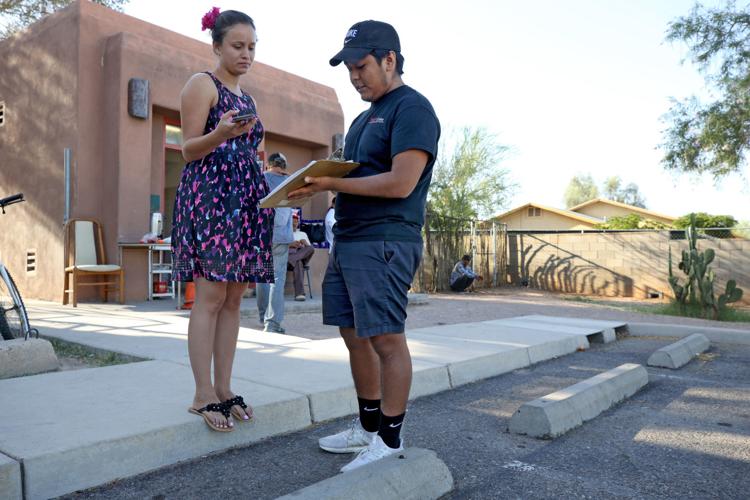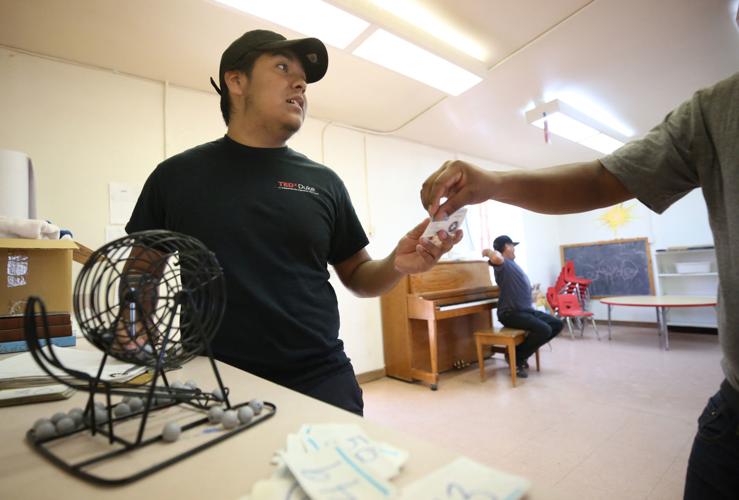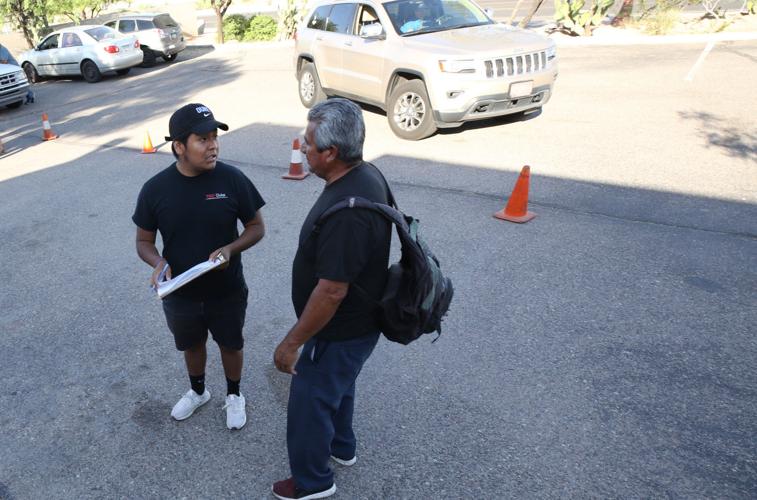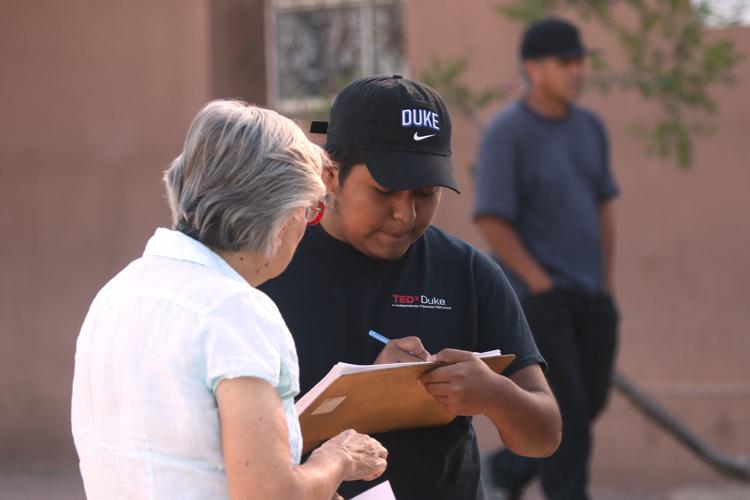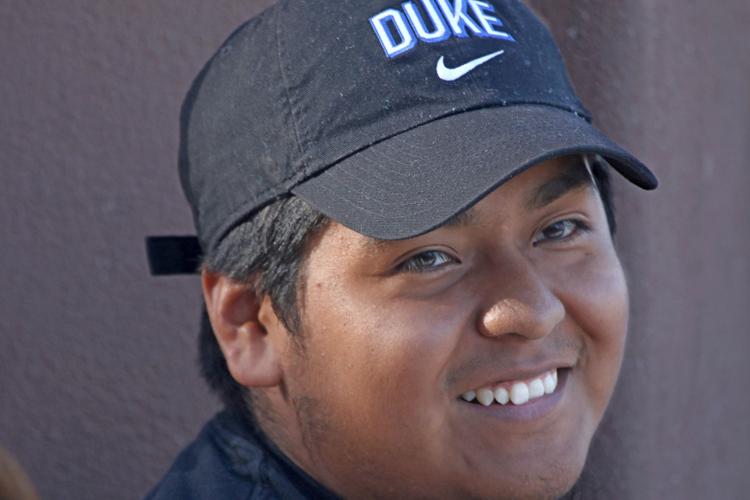On a recent early morning, as the heat made its presence felt, a pickup truck pulled into the lot at the Southside Worker Center where men and women gather six days of week waiting to be hired.
With a clipboard in hand, Erik Gregorio, dressed in shorts, a dark T-shir, blue cap, and sneakers, greeted the contractor who was in search of day laborers for a landscaping job. Gregorio motioned to a worker to join him. They huddled briefly before Gregorio and the laborer walked away. The contractor drove off without hiring the worker.
“He wanted to pay $11,” Gregorio said in an exasperated voice. “That’s just a few cents above minimum wage.” He explained that he and the worker rejected the contractor’s offer because they feared the contractor was lying about the kind of work they would have done. The contractor’s truck was loaded with wheelbarrows and shovels, and lacked rakes and other typical landscaping equipment.
The workers are in need of work but they won’t be exploited by greedy contractors, Gregorio said, looking across the dozen or so workers hoping for a respectful paying job that morning.
Gregorio, a Houston resident and a Duke University freshman, is 19 years old. He is spending his summer as a volunteer at the worker center on South 10th Avenue and West 23rd Street, south of Barrio Santa Rosa.
He could have stayed in North Carolina to take summer classes for his double major in computer science and engineering, and play soccer, his passion, or he could have returned home to be with his family and earn money from a summer job. Instead, Gregorio decided to spend eight weeks at the labor center at Southside Presbyterian Church.
“I feel like it’s my community here,” said Gregorio.
He understands what it means for immigrant workers to be disrespected and abused. His father, a construction worker and an immigrant, took 10-hour jobs that paid $100 during the recession.
Gregorio knows what struggles Tucson’s immigrant workers and families are experiencing. His parents and a sibling are undocumented. So is he. He’s also a “dreamer,” recipient of Deferred Action for Childhood Arrivals, temporary U.S. residency at risk under the Trump administration and the Republican-controlled Congress.
Gregorio arrived in Tucson on May 21 as part of the DukeEngage program, which connects its students with nonprofit community groups across the country. There are four other Duke students in Tucson who were invited by BorderLinks, a local immigrant advocacy group that coordinates educational immersion programs.
“I picked Tucson,” said Gregorio, who has visited the Tohono O’odham Nation and the immigration detention center in Florence, and will later go out to the desert to deliver water at the aid stations.
Neither at Duke nor in Houston can Gregorio see up close the face of immigration like he can here in Southern Arizona.
Gregorio was 7 years old when his mother and a sibling left their town in Guerrero, a state in southern Mexico, to join his father, who was working in Houston. Two more siblings were born in Houston after the family made their home in the bustling city.
In Houston, Gregorio said, his family didn’t talk much about its split legal status. His legal status didn’t keep him from activities or schooling but it meant that he has not seen his grandparents and uncles who live in Mexico.
But as he approached his senior year, Gregorio realized that going to a four-year public university was unlikely. His legal status and his family’s lack of money destined him for community college. But with his superior grades — he graduated in the top five in his class (along with two other dreamers in the top five) with a 4.5 weighted GPA — Duke, a private elite university, accepted him and gave him a full scholarship.
He clearly understands that he is privileged: He has a temporary work permit. He can’t be deported (unless his dreamer status is abolished). He is studying at a top university. But he also understands that he needs to give back. That’s what brought him to Tucson.
“This could be like my family,” he said.
In the time he has spent with Tucson’s immigrant workers, he has come to realize that they live in constant fear of being deported. The south-side workers, he said, are uneasy. It’s unlike Houston, Gregorio added, where immigrants like his father live and work with less fear.
He’s also learned something about himself: He’s opened up to others with his personal story. Knowing about the struggles of the immigrant workers, Gregorio said it’s important that others hear their stories and his own.
In this climate of growing demonization of hardworking immigrants as criminals, Gregorio believes people need to know about his family and the workers he has come to know.
Growing up, he was reluctant to talk to others about his family and their immigrant experience. It was something to hide.
Not anymore.


